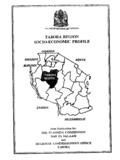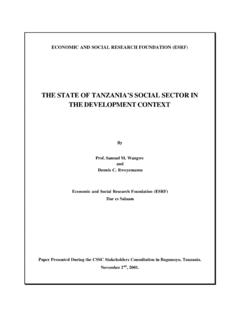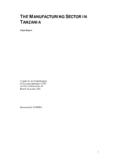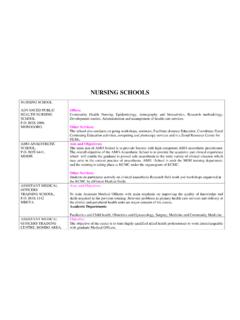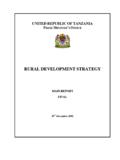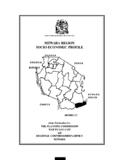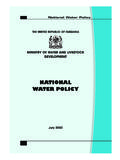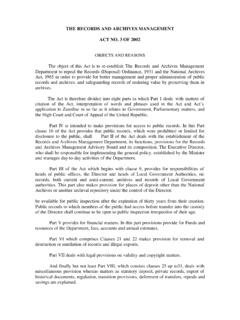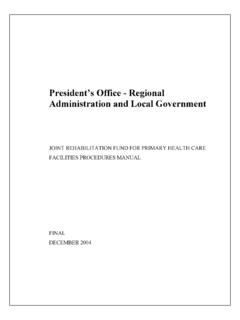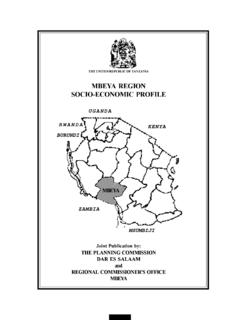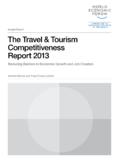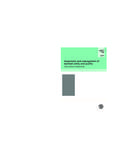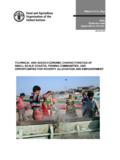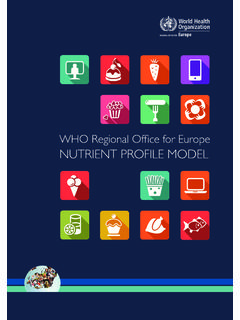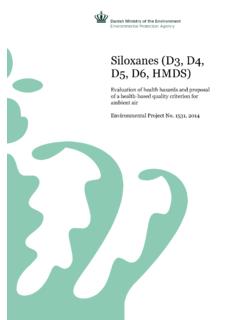Transcription of Social Development, Culture, and Participation - …
1 Social development , culture , and Participation : Toward theorizing endogenous development in Tanzania PhD thesis submitted to the Graduate School of Asia-Pacific Studies, Waseda University (GSAPS). October 2002. (April 2003 Revision). Kumiko Sakamoto Acknowledgements First of all, I would like to thank the villagers of Mbekenyera and Naunambe villages (Mbekenyera Ward, Ruangwa District), Naipanga Village (Nachingwea District), Rutamba ya Sasa and Rutamba ya Zamani villages (Rutamba Ward, Lindi Rural District), Sudi and Mchinga II villages (Lindi Rural District) to have contributed their knowledge and time for this research.
2 This thesis, especially Chapter 4, is a consolidation of their knowledge, and although I have left the original papers that noted down the discussions in the respective villages, I would like to dedicate this thesis back to the people. Secondly, I would like to thank the facilitators and interviewers for their effort: Mzee Issa Mapua for facilitating, and Mr. R. Nakumbya and Mr. A. B. Katoto for co-facilitating the field research in Mbekenyera and Naunambe villages; Ms. S. Malunda, Mr. I. Matola, and Ms. E. Kamagenge for facilitating in Naipanga Village; Mr.
3 A. T. Bubelwa for facilitating, and Ms. K. P. Liveta and Mr. R. J. Kwai for co-facilitating in Rutamba ya Sasa and Rutamba ya Zamani villages; and Mr. Omari Mchalaganya and Mr. Issa Kalenga for facilitating in Sudi and Mchinga II villages. Interviews were done by the same facilitators in the respective locations; and by Ms. Farida Kangesa in Dar es Salaam, by Mr. D. M. Masasi in Kilwa District, and by Mr. A. Chale and Mr. H. Mapua in Lindi Urban. Thirdly, Tanzania Commission for Science and Technology (COSTECH) kindly gave me their permission to undergo this research (Permit No.)
4 2001-185, File No. RCA 2001-29, Social development and culture : The Case of Tanzania ) and Prof. S. B. Likwelile has recommended, supervised, and advised me in Tanzania. I would also like to thank the village, ward, district, and regional officials for their understanding and support, and for sharing their knowledge of their locality. Special thanks to Mr. Mnguli for introducing contacts within Lindi Region, and giving relevant advices in the process of the field research. RIPS staff have shared their diversified knowledge with me: Dr. J. Wembah-Rashid, Ms.
5 Julie Adkins, Mr. Deodatus Babili, and Mr. Bright Msalya for sharing their knowledge and experiences; Mr. O. Kinyero for making Map 1; Mr. Dunford Kunnola, Ms. Kerstin Smetz, and Mr. Francis Mdembwe for sharing their documents; and Ms. Maria Notley for duplicating their video. I received valuable comments and advices from Prof. Marjorie Mbilinyi, Dr. Mihanjo, Dr. Max Mmuya, Dr. S. Mesaki, and Prof. Chachage of University of Dar es Salaam; Prof I. Kikula of UCLAS (University College of Land and Architecture Studies); Prof. Juhani Koponen, Prof. Jun Ikeno, and Prof.
6 Yasuo Takamura. My ex-colleagues in UNDP (the United Nations development Programme), UNICEF (the United Nations Children's Fund), and Vice President's Office have also been helpful in inspiring my research through sharing their experiences and information. I. would like to thank Ms. Mio Takada, Ms. Simrin Singh, and Mr. Andy Hurd for their hospitality in Dar es Salaam; Annie of Concern in Lindi; and Ngwegwe family and Ndarage family in Mtwara. The list of people whom I appreciate toward extends to Appendix A. Many of them have provided comments and advices on the research proposal and draft interview questionnaire.
7 Mwalimu Esta has been extremely kind to April 2003 i translate the first draft of the English questionnaire into Swahili on short notice. Although the questionnaire changed drastically based on the various comment received in Tanzania, the first Swahili questionnaire enabled a great starting point. Mr. Timo Voipio has also been extremely generous in giving prior tips that enabled me to maximize my field research in southeastern Tanzania. This thesis was not possible without the supervisions of my advisor Prof. Jun Nishikawa and my deputy advisor Prof.
8 Yoshiaki Abe of GSAPS (Graduate School of Asia-Pacific Studies), Waseda University. They have gone through various versions of the draft thesis and articles, sat through presentation rehearsals, and provided precise directions and advices. I would also like to thank my classmates for commenting in such occasions. The research was possible financially with sponsorship of Waseda University Grant for Special Research Projects (Individual Research) entitled culture and Social development .. The introduction and the structure of the thesis were presented in an interim presentation on 25 February 2002, in GSAPS, Waseda University.
9 Prof. Nishikawa chaired the presentation and professors Abe, Takeshi Hara, and Glenda S. Roberts provided valuable advices. A part of this thesis (mainly reformulated in chapter 4) was presented at the 12th Annual Conference of the Japan Society for International development in Hiroshima, Japan on 1 December 2001 as culture and Social development in Tanzania: From the case of Lindi Region and received comments from professors Junzo Kawada, Kyoko Kikuchi, and Jin Sato. A draft article on the subject has been shared with Mr. Stephan Dondeyne, Mr.
10 Jozef Serneels, Ms. Chika Hyodo, Ms. Babette Pfander, and Ms. Mio Takada, and received their criticism, inspiration, and encouragement. A different part of this thesis (latter part of chapter 3) was presented in the 39th Annual Conference of Japan Association for African Studies in Sendai, Japan on 26 May 2002 as Is Swahili culture Social development Unfriendly? Historical formation of poverty in Tanzania and received valuable comments from professors Shunya Hino and Chizuko Tominaga, and encouragement from Dr. Tadasu Tsuruta. The thesis was presented and defending in an oral examination on 6 February 2003, in GSAPS, Waseda University.
